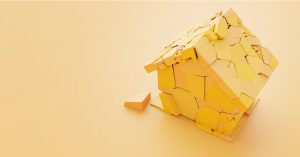What is a Condominium Association’s Responsibility to Residents for Property Damage Claims?

Here in New Jersey, our Condominium Act (N.J.S.A. §46:8B-1, et seq., the “Condominium Act”) confirms that an “Association” is the “the entity responsible for the administration of a condominium.” As such, the association, through its board, has a duty to maintain and repair the common elements on the condominium property when necessary. Homeowners are typically responsible for damages which occur to their units. However, some damage which impacts the unit, may actually result from an issue with the common property. Conversely, some issues with the unit may endanger or create damage to the common property. Accordingly, in most circumstances, the condominium association should first gather all relevant information regarding a damage claim by inspecting the condition to confirm the cause. The association should also document the property damage and determine responsibility. In general, your association’s governing documents (Master Deed and By-laws), will contain a provision which gives the association the right to access a unit to inspect damages. In addition, the Condominium Act, N.J.S.A. §46:8B-15 (b), further provides that “[t]he association shall have access to each unit from time to time during reasonable hours as may be necessary for the maintenance, repair or replacement of any common elements therein or accessible therefrom . . .”
In addition to investigating and documenting property damage, the condominium association is also responsible for submitting a claim to the association’s insurance carrier if the damage is an insurable loss. Indeed, the Condominium Act is clear that condominium associations in New Jersey are responsible for carrying certain insurance covering all common elements and all structural portions of the condominium property. Keep in mind that damage caused through no fault of the association may still be covered by the association’s insurance policy. Boards and managers should consult with counsel and also their insurance agent if questions arise with regard to coverage. Submitting a claim in a timely manner will expedite the process and help to ensure that the claim is processed efficiently.
Finally, where appropriate, the condominium association should also ensure appropriate repairs are made to the damaged property. In the case of an emergency, the repairs should be made as quickly as possible to avoid additional damage or harm. In fact, in accordance with the Condominium Act (N.J.S.A. §46:8B-15 (b)), the association can also act to make emergency repairs within a unit which are “necessary to prevent damage to common elements or to any other unit or units. The association may charge the unit owner for the repair of any common element damaged by the unit owner or his tenant.” Accordingly, the condominium association has the right to make the repairs and charge back the responsible owner.
In sum, condominium associations are generally responsible for investigating property damage claims, determining responsibility, notifying the association’s insurance carrier, and, where appropriate, making repairs to mitigate the damages. Navigating the many issues associated with property damage claims can often be difficult, especially where the situation is emergent. If you have questions about this topic or any other community association matter, please feel free to contact any of the attorney’s in our New Jersey Community Association Practice Group.





